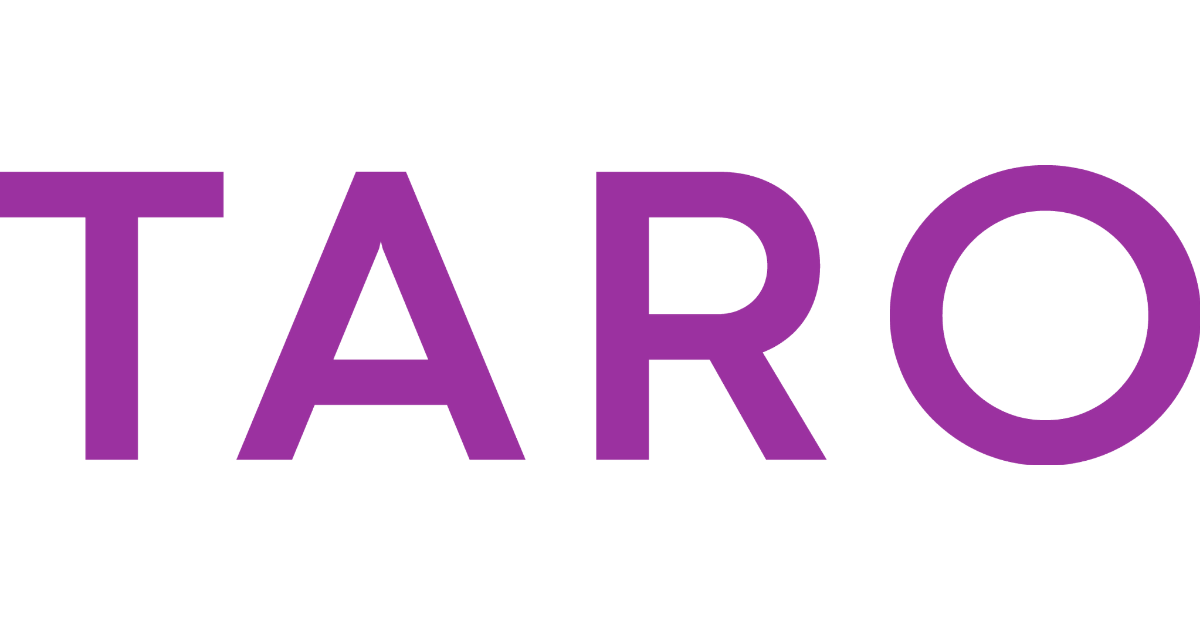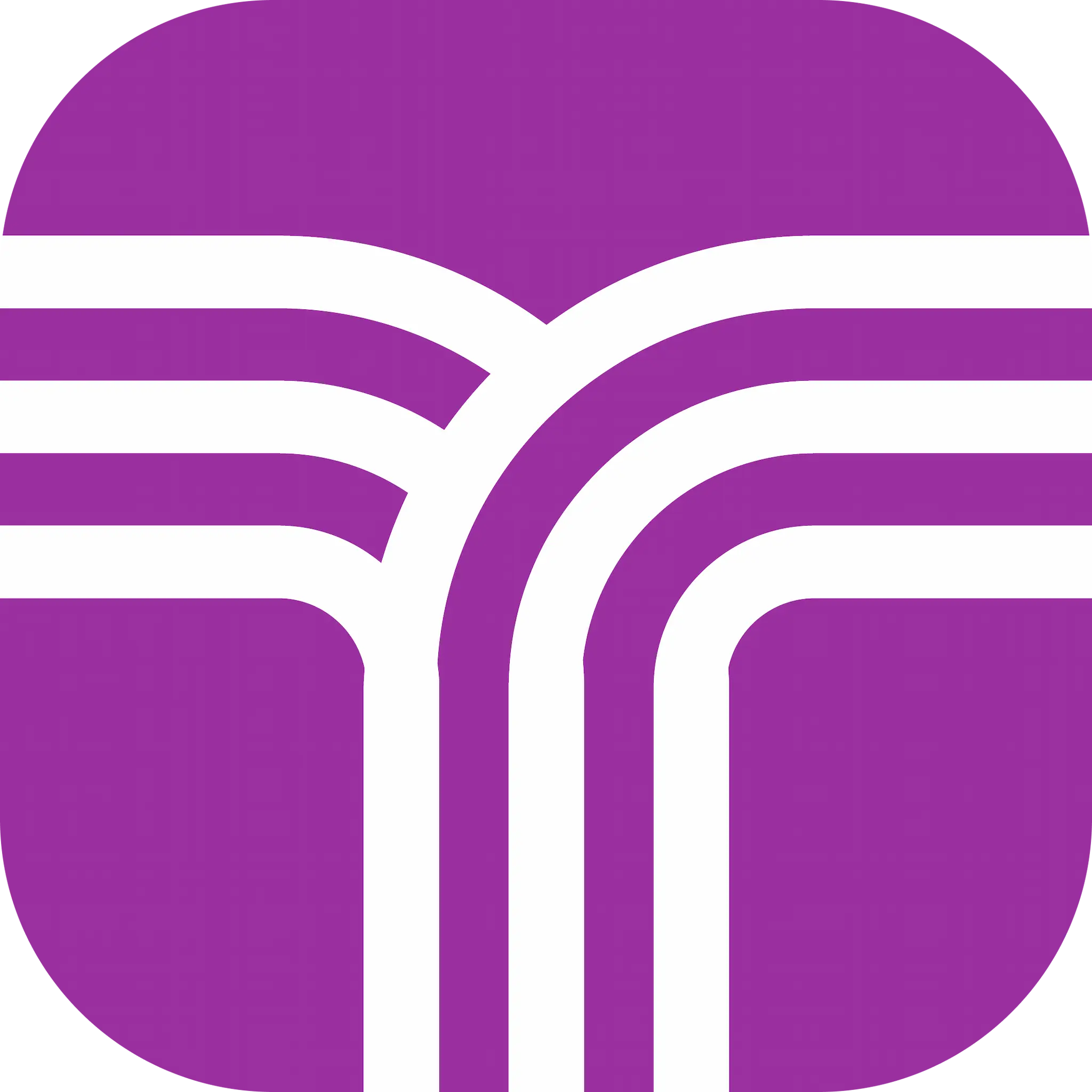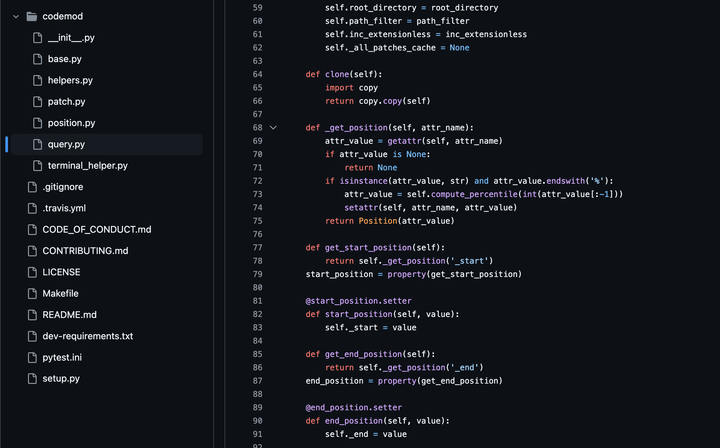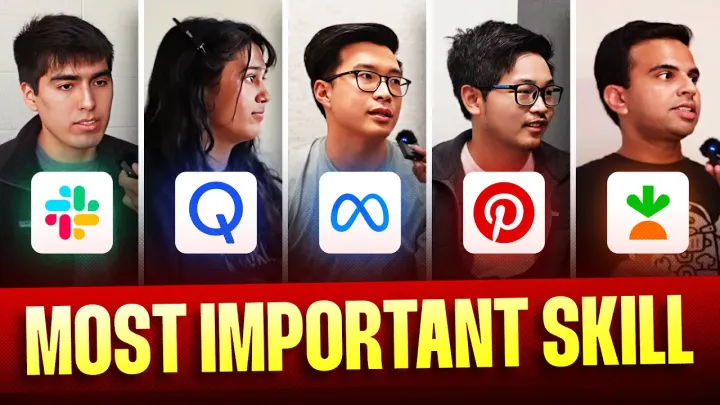82 Tech Career Acronyms: A Ratchet Guide to Tech Jargon

I've had a variation of this conversation many times in my career.
I'll ping you offline via DM about the perf cycle in the next sprint cycle.
Ack
Ack is right! Whether you're brand new to tech or a grizzled veteran with decades of experience, this industry will present you with a daunting number of acronyms, made-up words, and slang. In the above exchange, "ack" is short for acknowledged, used to quickly tell the recipient that their message has been received (often during production issues).
Use the browser's find option to jump directly to the term you're confused about, or read on to imbibe the tech culture deep within your soul.
We split this guide into 2 sections: first, we cover general terms used throughout the tech world. Then, we document terms for specific companies. When a company gets large enough (think FAANG companies), it starts developing its own culture and language.
Tech Industry Terminology
- A/B Test: An experiment to modify an experience and choose between several options (A or B). This could be as simple as changing a button color or the entire underlying interface for the app. A/B tests are notoriously hard to get right and often suffer from imbalanced groups and unintended consequences.
- Agile: Software development focused on rapid iteration and communication instead of careful planning. (In contrast to the older "waterfall" style of development.) Often abused by power-hungry project managers who want to control what engineers should work on.
- Application Programming Interface (API): A way to describe how different software components will interact. "That team has a horrible API!" is a common excuse for delays indicating that there's an integration challenge.
- This is one of those terms for which no one uses the full form. Stick with API and you'll be good.
- Backend: The part of the software system that users don't interact with. Backend engineers fit the classic nerd stereotype: they're more comfortable in front of the computer than in front of a person – that's why they chose backend development.
- Big Data: Lots of data, typically generated by lots of users doing something on the Internet. How big is 'big' depends on who you're talking to – in the 80s, a gigabyte was a lot. Nowadays, people don't bat an eye at a petabyte (that's a million gigabytes).
- Bugs: The bane of most developers, yet impossible to avoid as long as humans write software. A bug is when something goes wrong with the software.
- C-Suite: The head honchos of the company – the CFO, CTO, and COO (read: the most powerful and richest people). Many companies will try to be cutesy and call this something more alluring, e.g. the "S-team" with Jeff Bezos at Amazon.
- Cloud: Storage and computation that doesn't live on your device. In the old days, users would do all their work using the data + software on their computer. In the Internet age we live in now, no one does this, and the data + software we constantly use is coming from the "cloud."
- Database: The thing that holds all the data, things like users or items. There are many types of databases – you choose the right one based on how you want to find (query) or add (insert) relevant information to the database.
- Data modeling: The way you structure and organize your data. Engineers love to debate this since data modeling decisions have many ramifications for the speed of many user-triggered tasks.
- Devops: The people who take the shitty code written by software engineers and try to deliver it to users, e.g. ensure the code runs without crashing, can handle traffic spikes, and deploys properly. This role is highly overlapping (or identical) to the Site Reliability Engineering (SRE) role.
- Equity refresh: A new equity (stock) grant for employees who have been at the company for a while. A substantial part of tech compensation is with company stock, so every few years, companies will give refresh grants to employees who they want to stick around.
- Frontend: Pixel pushers. The engineers who build and maintain the part of the software that the user interacts with. Many companies pay frontend engineers less than backend engineers since it's perceived to be less difficult.
- Full-stack: For most engineers, someone who is bad at both front-end and back-end code. For the rare engineer, full-stack means someone with knowledge of the user interface and the backend database.
- Ideate: What people in tech call brainstorming. PMs who claim they want to 'develop the product roadmap collaboratively' will often force engineers to participate in ideation sessions.
- Noob: A new person, also referenced as n00b. Usually used in a self-deprecating manner to indicate lack of context. "Might be a noob question, but why are we doing X?"
- Objective and Key Results (OKRs): A common way to do planning and goal-setting at a company, popularized at Google in the early 2000s. The idea is to define an objective that can be measured by various metrics that are captured by key results.
- Offline: Discussing something outside a meeting. "Taking something offline" is often a power move to suggest that something is not worth discussing with the group and should be resolved 1:1. Ironically, "offline" often means resolving things virtually (online?) via chat or video call.
- Perf cycle: The way tech employees are evaluated by their companies on a 6-month or 1-year cadence. Usually results in compensation changes through salary, bonus, or company stock, so the stakes are high and everyone is high-strung.
- Performance Improvement Plan (PIP): A formal document used by companies to tell employees that their performance is deficient. The mere mention of a PIP will cause anxiety to many tech workers. Many companies (Amazon 👀) will use PIPs as a formality before employee termination.
- Ping: The techie, informal way of saying message. "Let me ping you when I'm back to my desk."
- Project Manager (PM): People who manage project timelines and ensure coordination across engineers and teams. Often butt heads with engineers who don't want to answer to someone who is a timeline-pusher.
- Program Manager (PM): Mostly the same as a Project Manager, but more focused on timelines across projects. Usually, this person is non-technical, which contributes to the frequent animosity between this role and engineering.
- Product Manager (PM): They like to call themselves the "CEO of the product," but really, they're trying to corral the people who do the actual work. Good Product Managers set strategy and vision while orchestrating the work across functions.
- Quality Assurance (QA): The people who shame you for writing shitty code. QA refers to the team (and processes) to ensure high-quality software.
- Formal QA is often non-existent in modern companies that deploy software frequently (or continuously). In these cases, "QA" often ends up being the end-user 🥲
- Responsive: Making your app look good on various screen sizes: from your Macbook laptop, to an Android mobile browser, or the Apple Vision Pro. Have fun making your app look good in the Metaverse.
- Scrum: An agile team collaboration framework that often results in daily standups where developers report progress or issues with their tasks.
- Sprint: A block of time (usually 2 weeks) for an engineering team to complete tasks. A "scrum master" or project manager will review the tasks completed and assign work in sprint planning meetings.
- Software: What makes the world go round! Software is any kind of program written with computer code.
- Total Compensation (TC): Compensation coming not only from salary, but also bonus, equity, and other benefits. Many engineers obsess over this number.
- Traffic: Measuring the usage of an app, either in terms of ingress or egress (data in/out of a network) or the number of users on a platform.
- User Interface (UI): The visual design and actions the user takes to interact with the product. Most engineers delegate UI concerns to the designers (you can identify a designer if they're wearing all black).
- User Experience (UX): The user's experience when interacting with the product. Pro tip: you'll sound smarter in meetings if you say, "Let's start with the UX."
- Version control: A tool developers use to track changes in the software. When bugs are inevitably added to the codebase, version control is an easy way to backtrack to a functional version of the code.
- Waterfall: An approach to software development focused on careful planning and requirements-gathering. This was the standard approach to software decades ago, when computer time was expensive and software was difficult (or impossible) to update.
Meta Terminology
- MPK 20 (and also 21, 22): A massive extension to the Classic campus in Menlo Park. Building 20 is one of the largest open offices in the world, later extended to Building 21 and 22.
- Additional Equity: One-off equity grants given by Senior Directors or higher to reward (and retain) top engineers. The exact amount and frequency of AE is unclear, but it's rare. Previously, this was called Discretionary Equity (DE).
- Bootcamp: The famous onboarding process for engineers joining Meta, a 6 week investment to ensure cultural and technical knowledge transfer.
- Boz: Meta's CTO, Andrew Bosworth. Tries very hard to be a thought leader with long internal memos published on Workplace.
- Classic Campus: The first large-scale campus for Facebook in Menlo Park (they moved here in 2011). This was formerly the campus of the now-defunct Sun Microsystems.
- Company multiplier (CM): Along with the individual multiplier, determines the bonus amount paid to employees. Empirically, the company is almost always above 1x, averaging around 1.1x. The final bonus is computed by multiplying the amount with the IM and CM.
- Engineering Axes: The various dimensions along which engineers at Meta are evaluated: Project Impact, Direction, Engineering Excellence, and People.
- Hacker Square: The center of the Classic Campus building at Meta's Menlo Park HQ. "HACK" is written in huge letters into the ground.
- Facebook: The original name for the company until 2021. Also the eponymous name of the original Facebook app launched in 2004.
- Faceversary: The yearly celebration when an employee has worked at the company for a certain number of years. Employees receive messages of congratulations on Workplace, and perhaps a sticker from the company.
- Individual multiplier (IM): Based on your performance review rating, employees receive a multiplier that increases or decreases their bonus. e.g. someone who greatly exceeds (GE) expectations gets a 1.65x multiplier on their bonus.
- Mark: The naked first name refers only to Mark Zuckerberg, Meta's founder and CEO. Created the largest social platform in the world and became one of the richest + most powerful men in the world.
- MPK: the acronym for Meta's headquarters in Menlo Park, CA. If you're in a remote office, you'll likely have to adjust at least partially to the engineers in MPK.
- Performance Summary Cycle (PSC): The Meta perf cycle for evaluation, which determines your promotion and bonus. You'll probably procrastinate on the self-review and peer-reviews until the day before the due date.
- Production Engineer: The Meta terminology for SRE or Devops Engineers.

- Up or out: Engineers must get promoted to Senior Engineer [E5], the first terminal level, within a few years. There are two phases as part of up-or-out: the 🟨 yellow zone and the 🟥 red zone, at which point you start to get evaluated at the next level – E3 entry-level gets evaluated as E4, and E4 mid-level gets evaluated as E5.
- Workplace: An internal version of Facebook used for company-wide collaboration. Heavy use of groups and chat to disseminate information. Many employees love this style of working compared to Slack or email overload.
Google Terminology
- GVC (Google Video Call): Google's internal tool for video conferencing. You can be sure it's better than GMeet (RIP Hangouts).
- Memegen: An internal meme generator for employees to share jokes and poke fun at various initiatives, milestones, or projects.
- Microkitchen (MK): The source of sustenance and procrastination. A small kitchen with free access to snacks, drinks, and coffee. Larry Page and Serey Brin instituted a rule that no Googler can be more than 100 feet away from food.
- Noogler: A new Google employee. You get to wear the dorky Google hat with the propellor for some likes on social media.
- Googler Reviews and Development (GRAD): Google performance evaluation system. Engineers are evaluated on several criteria: Contribution, Challenge, Influence, and Expertise.
- Googleyness: Purportedly about how much you adhere to Google's values, but also a catch-all for what your coworkers don't like about you.
- Support check-in: Phrase used by management to indicate poor performance and a likely PIP. Another indication of this is receiving the NI (Not Enough Impact) rating.
- TGIF: Google's famous weekly all-hands meetings with the executive team. This was originally on Friday, but confusingly is now held on Thursdays.
- Xoogler: The community of ex-Google employees. A helpful community for fundraising, finding a job, and general networking.
Amazon Terminology
- Back-weighted Equity: Amazon offers equity to employees over a 4 year period, but the vesting schedule is biased toward the end of the 4 year grant. Generally, you'll get a signing bonus over years 1 and 2 to "make up" the initial TC difference.
- Hire to Fire: Amazon has a notorious reputation for letting go of a certain percentage of employees each year. Some managers are forced to cut people, leading to the practice being referred to as "hire to fire."
- Leadership Principles (LPs): The famous list of 16 principles that dictate how Amazon solves problems. You're evaluated based on showing dedication to ideals such as "Customer Ownership," "Are Right, A Lot," and "Bias for Action." If this sounds a bit like a cult...
- Focus: Indication of a performance issue. Also called a "Development Plan" or a "Development List." 10-15% of each organization is put into "Focus" each cycle. You are given a well-defined project that takes around a month to execute.
- Forte: Amazon's internal tool for employee feedback. This tool understandably creates a lot of stress given the expectation that Amazon must cut some % of employees regularly.
- Peak: Amazon's most intense season for e-commerce, from Black Friday to Christmas.
- Pivot: A more severe indication of a performance issue. You're given an aggressive project to complete that's also well-defined. If you don't succeed, you are fired. Most Amazonians on PIP do not survive.
Microsoft Terminology
- Contoso: A fictional company used in Microsoft training. A team of lawyers approved it safe from any trademark infringments, and now this company will never die.
- Connect: A private document that every employee creates to document their work for performance reviews.
- Little r me: Microsoft slang to say "just reply to me," e.g. on a email list about some topic, little r avoids spamming the whole thread.
- OOF: The Microsoft quirky way of saying OOO (out of office). OOF stands for 'out of facility' and is derived from the command used in the old Xenix mail system.
- Perspective: The MSFT terminology for peer feedback, generally collected right before Connect.
- Talent Reviews (or Talent Celebrations 😅): The euphemism for calibrating engineers during performance review. Microsoft is trying to shed its poor reputation from the early 2000s of aggressive stack ranking.
- Special Stock Awards (SSAs): Discretionary awards given to high-potential, high-performing employees. SSAs may be given to employees to soften an equity drop or to retain employees who received a competing offer.
- V Dash: A contract employee from a vendor. In the Microsoft email system, these contractors have an email beginning with "v-."
If there's something you'd like to see added here, please shoot us an email at team@jointaro.com!




Comments ()